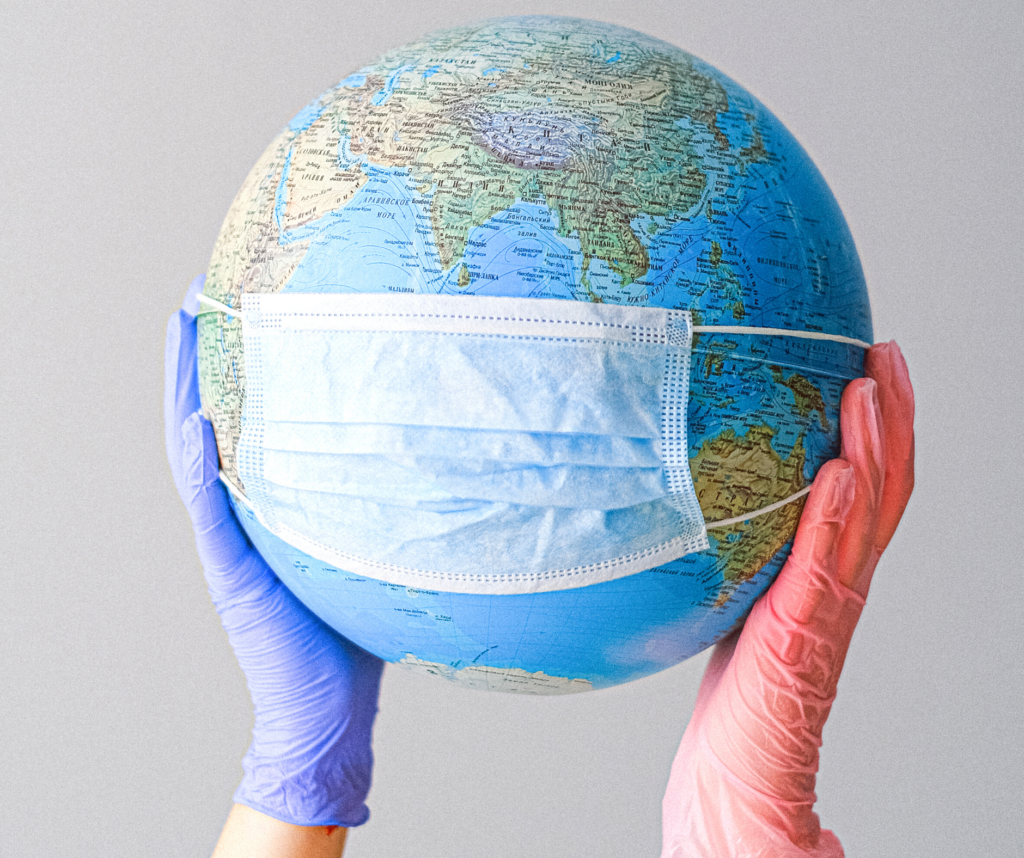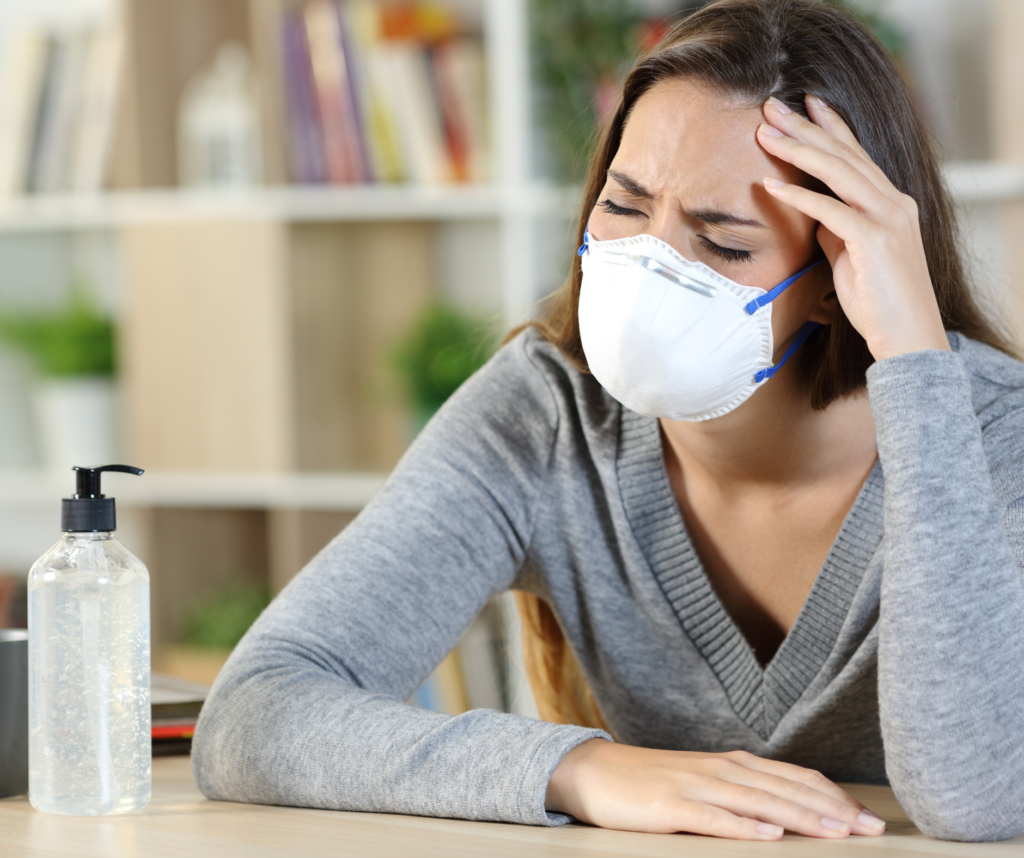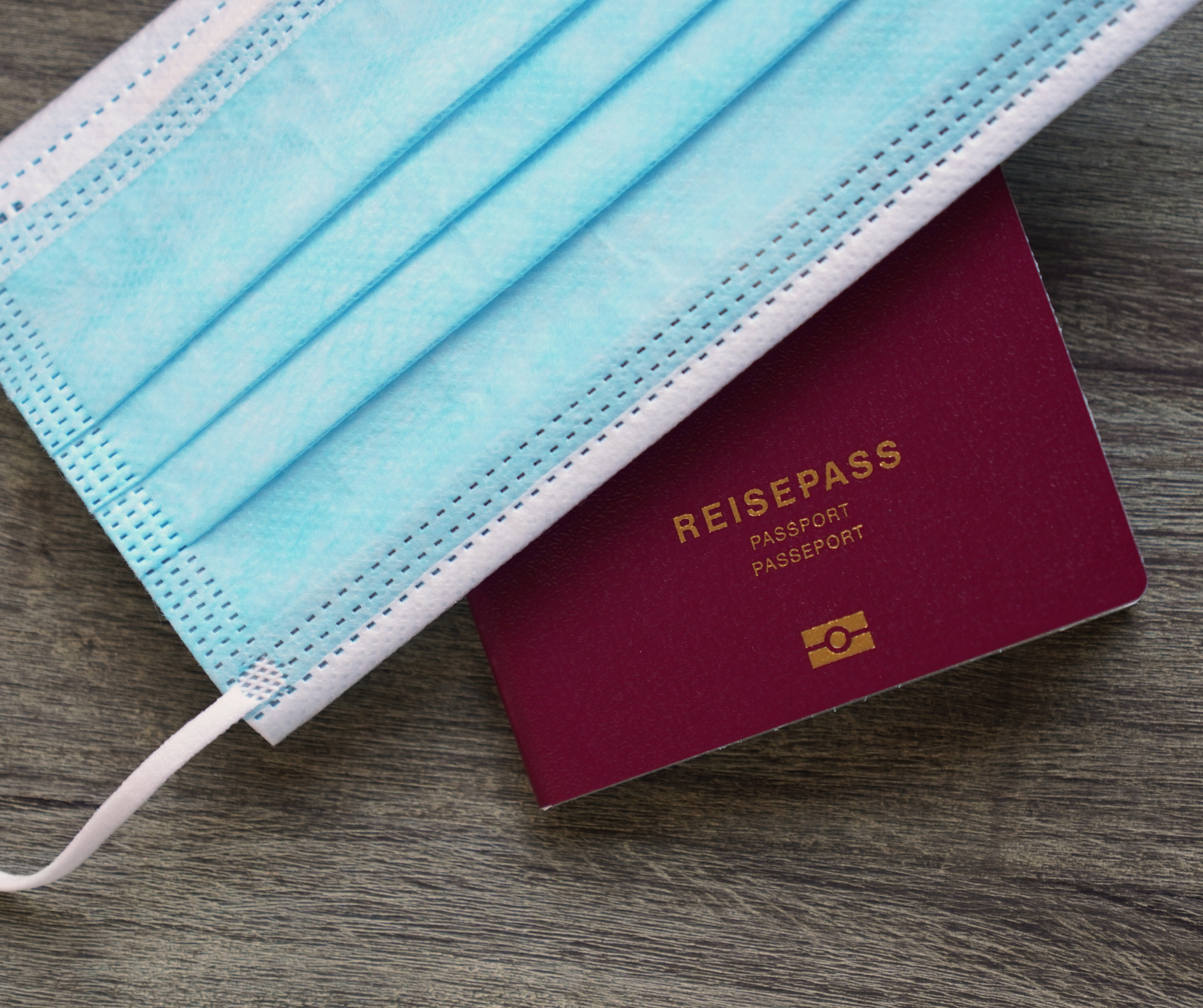What is COVID-19?
Coronavirus disease (COVID-19) is an infectious disease caused by the SARS-CoV-2 virus.
Most people infected with the virus will experience mild to moderate respiratory illness and recover without requiring special treatment. However, some will become seriously ill and require medical attention. Older people and those with underlying medical conditions like cardiovascular disease, diabetes, chronic respiratory disease, or cancer are more likely to develop serious illness. The virus that causes COVID-19 is a novel coronavirus that was first identified during an investigation into an outbreak in Wuhan, China.

How is COVID-19 spread?
The coronavirus is most likely spread from person-to-person through:
- Close contact with a person who has the infection.
- Contact with a person with the confirmed infection who coughs or sneezes
- Touching objects or surfaces (e.g. door handles or tables) that have been contaminated from a cough or sneeze from a person with the confirmed infection, and then touching your mouth or face.
How can we stop spreading COVID-19?
Practising good hand and sneeze/cough hygiene is the best defence against COVID-19. Its important to:
- Wash your hands regularly with soap and water, before and after eating and after going to the toilet.
- Cover your cough or sneeze into your elbow, and use handsanitiser. Always wash your hands after sneezing or coughing.
- Wear a mask where possible in all public places.
- If feeling unwell, avoid contact with others (e.g. touching, hugging etc.)


What are the symptoms?
It can take up to 14 days after you are infected for symptoms to show. You can spread COVID-19 during this time.
The coronavirus is most likely spread from person-to-person through:
- Fever, tiredness, and dry cough.
- Some people infected may have aches and pains, nasal congestion, runny nose, sore throat or diarrhea.
- It is possible to become infected but not develop any symptoms or feel unwell. It can take up to 14 days for symptoms to appear. The virus will still be contagious even if you’re symptom free.
What is self-isolation?
If a worker/yourself is required to self-isolate – they should:
- Avoid having visitors and ask friends and family to drop off any food or medicines that they may require.
- Avoid leaving the house at all costs and do not go to work, school, public areas or use public transport.
- Don’t go to the GP or A&E.
- Healthcare workers are no longer advised to undergo testing if symptomatic, however they should follow the latest guidance as it applies to the general population.


Handwashing Techniques to Stay Healthy
Follow these five steps every time.
- Wet your hands with clean, running water (temperature does not matter), turn off the tap, and apply soap.
- Lather your hands by rubbing them together with the soap. Lather the backs of your hands, between your fingers, and under your nails.
- Scrub your hands for at least 20 seconds.
- Rinse your hands well under clean, running water.
- Dry your hands using a clean towel.
Common questions
Is there a vaccine to prevent or cure Coronavrius?
Yes. Covid-19 vaccines help our bodies develop immunity to the virus that causes Covid-19 without us having to get the illness. Currently the following vaccinations are being used in Ireland: Pfizer/BioNTech, Moderna, AstraZeneca and Janssen/ Johnson & Johnson.
There are also booster dose vaccines available to those that have received their initial vaccine. Set timelines after initial doses are set out for each of the different vaccines. This information can be found on:
https://www2.hse.ie/screening-and-vaccinations/covid-19-vaccine/vaccine-types/
Antigen Testing
A COVID-19 antigen test detects coronavirus proteins in the mouth and throat. This test determines whether a person is currently infected with COVID-19.
Antigen testing is a suitable ‘first line of defense’ test against COVID-19, particularly in individuals who have COVID symptoms, because it is a relatively simple procedure, and is quicker than other approaches – like PCR testing; it typically takes around 15 minutes for a result.
It is less accurate than PCR testing, however, as a high viral load is required for the antigen test to detect SARS-CoV-2 virus (COVID-19). Some people in the early or late stages of infection may therefore return a false result, although this is not common.
PCR Tests
The polymerase chain reaction (PCR) test for COVID-19 is a molecular test that analyzes your upper respiratory specimen, looking for genetic material (ribonucleic acid or RNA) of SARS-CoV-2, the virus that causes COVID-19. Scientists use the PCR technology to amplify small amounts of RNA from specimens into deoxyribonucleic acid (DNA), which is replicated until SARS-CoV-2 is detectable if present. The PCR test has been the gold standard test for diagnosing COVID-19 since authorized for use in February 2020. It’s accurate and reliable.
You can now only get a PCR test if you have symptoms and you: are age 55 or older and have not had a COVID-19 vaccine booster dose, have a high-risk medical condition or have a weak immune system (immunocompromised).
Importance of Personal and Protective Equipment (PPE)
It is extremely important for anyone working in a homecare or healthcare setting to ensure they effectively use their PPE. Donning and doffing of PPE is an integral part of reducing risk of transmission and spread of Covid-19.
Do I need to wear a face mask?
You are recommended to wear a face mask in some situations to help stop the spread of COVID-19.
It is no longer mandatory to wear a face mask on public transport, in taxis, shops, schools.
Other times when a mask should be worn include:
• If you are at higher risk of being seriously ill if you get COVID-19 you are recommended to wear a face mask indoors or in crowded places.
• If you are visiting somebody at higher risk of COVID-19
• If you are visiting a healthcare setting, for example a GP surgery or hospital.
• If you have COVID-19 you should isolate for 7 days but if you need to be in the same room as another person, everyone in the room should wear a face mask.
• If you have completed 7 days of self-isolation you should wear a face-mask for 3 days afterwards.
If you have symptoms of COVID-19 but did not get tested, you should immediately self-isolate and continue for 48 hours after your symptoms end
Travel & Coronavirus
Citizens should exercise caution in any decisions about international travel, taking account of their overall health, their vaccine status, and the risk of testing positive for COVID-19 while abroad. If you contract COVID-19 when abroad, you may face delays and additional costs before returning to Ireland. It is important to check with your travel insurance provider on coverage before travel.
From Sunday 6 March 2022, travellers to Ireland are not required to show proof of vaccination, proof of recovery or a negative PCR test result upon arrival.
There are no post-arrival testing or quarantine requirements for travellers to Ireland.
Any individual that develops COVID-19 symptoms while in Ireland should follow the HSE guidance in relation to isolation and undertaking antigen or PCR testing as appropriate.
Passenger Locator Form
From Sunday 6 March 2022, travellers to Ireland are no longer asked to complete a COVID-19 Passenger Locator Form.
Travel carriers will not ask to check a PLF receipt prior to travel to Ireland.
Travelling overseas from Ireland
While all travel requirements to enter Ireland have been removed, other EU and non-EU countries may still require travellers to hold either:
• proof of vaccination
• proof of recovery, or
• a negative test result
Please review the requirements for your destination in advance of travel. Details of specific measures in place can be found on DFA Travel Advisory.
Travel to Great Britain
There are no COVID-19 restrictions in place for travel to Great Britain from Ireland. There is no requirement to present certificates of vaccination/testing for COVID-19 or to complete a Passenger Locator Form.
Digital COVID Certificates
The Digital COVID Certificate is a standardised record of a medical event which took place in an EU country. These certificates are issued for vaccination, recovery and test results under EU law.
While travellers to Ireland will not be asked to show their Digital COVID Certificate upon arrival, the certificates will continue to be issued as proof of a medical event.
Travellers who require a Digital COVID Certificate for booster vaccination, recovery or test results to travel to another country can still request one.
The document is not a precondition for travel, but it does make travelling within the EU easier. However, you will still need to adhere to the restrictions in place in the country you are travelling to. You can find detail on these restrictions on the ReOpen EU website.

COVID-19 Key Facts
- It is most likely to be spread through coughs and sneezes when a person is infectious. Sneeze into your elbow and always wash your hands after sneezing/coughing.
- There is a possiblility that the virus can spread from surface to human contact.
- You must not go to A&E if you are unwell and think you may have COVID-19.
- You must call your GP or ring 112 or 999 if you think you have coronavrius.
- Good hand hygiene is one of the best ways of preventing the spread of the virus. Cough etiquette helps too.
All information found on this webpage has been gathered from the World Health Organisation, Health Service Executive, National Health Service and the Centers for Disease Control and Prevention.
To keep informed of any changes in these guidelines please go to www.hse.ie or www.who.int




